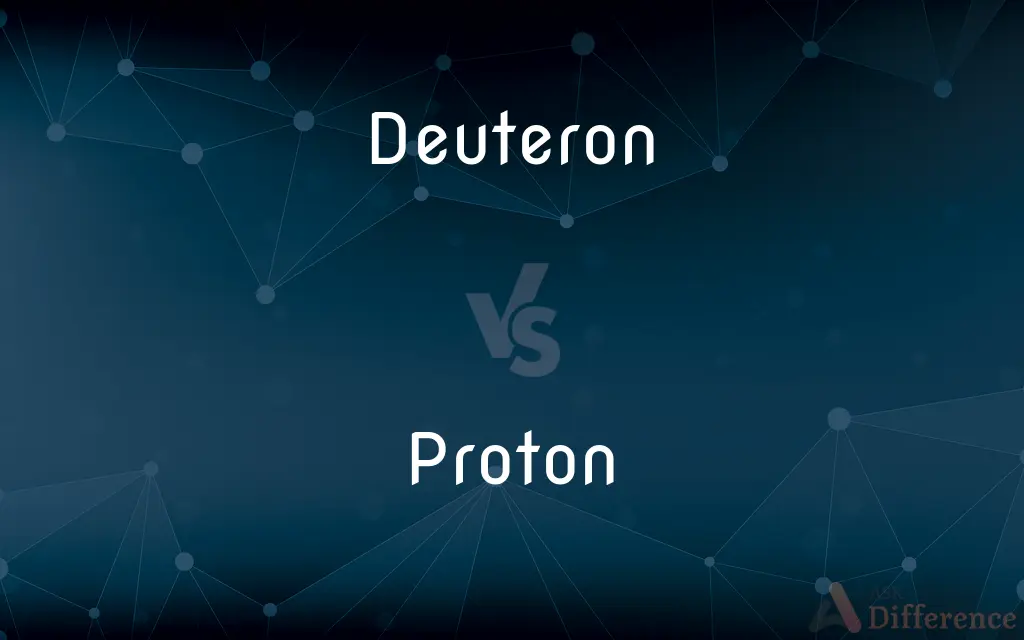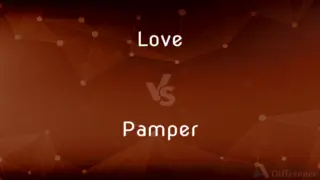Deuteron vs. Proton — What's the Difference?

Difference Between Deuteron and Proton
ADVERTISEMENT
Compare with Definitions
Deuteron
The nucleus of a deuterium isotope of hydrogen, composed of a proton and a neutron, regarded as a subatomic particle with unit positive charge.
Proton
A proton is a subatomic particle, symbol p or p+, with a positive electric charge of +1e elementary charge and a mass slightly less than that of a neutron. Protons and neutrons, each with masses of approximately one atomic mass unit, are jointly referred to as "nucleons" (particles present in atomic nuclei).
Deuteron
(physics) the atomic nucleus of deuterium, consisting of a proton and a neutron
Proton
The stable, positively charged nucleon, having a mass 1,836 times that of an electron and being a baryon composed of two up quarks and one down quark. The proton is a basic component of all atomic nuclei and the nucleus of the protium isotope of hydrogen.
Deuteron
The nucleus of deuterium; consists of one proton and one neutron; used as a bombarding particle in accelerators
ADVERTISEMENT
Proton
(particle) A positively charged subatomic particle forming part of the nucleus of an atom and determining the atomic number of an element, composed of two up quarks and a down quark.
Proton
The atomic nucleus of protium hydrogen-1}}
Proton
Synonym of primordium
Proton
A stable particle with positive charge equal to the negative charge of an electron
Share Your Discovery

Previous Comparison
Love vs. Pamper
Next Comparison
Evildoer vs. Sinner














































